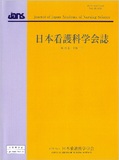Japanese
English
- 販売していません
- Abstract 文献概要
- 参考文献 Reference
要旨
目的:日本で外来通院中の中長期在留者の2型糖尿病と共に生きる生活体験のあり様を明らかにする.
方法:2型糖尿病で外来通院中の中長期在留者6名に半構造化面接を実施した.1段階目として質的統合法(KJ法)を行った後,2段階目としてカテゴリ化を行った.
結果:1段階目の分析の結果,最終ラベルは39枚となった.2段階目の分析の結果,《日本で気づいた糖尿病の怖さ》《母国との比較で日本の医療を肯定した自己管理への取り組み》《医療者に頼らない自分での対処》《母国の食文化とは異なる日本での自己管理への取り組み》《その人なりの糖尿病との生活》《異国での糖尿病と暮らす戸惑いや不安》《外国人だからこそ感じる糖尿病治療への期待》の7つのカテゴリが明らかになった.
結論:中長期在留者の自己管理や糖尿病との生活には,母国とのギャップや日本の医療の捉え方が影響し,特有の困難や状況があると考えられた.文化背景に歩み寄り,多様性に配慮した支援の必要性が示唆された.
Aim: This study aims to clarify the experiences of mid-to-long-term residents of Japan with type 2 diabetes who were being followed up at a hospital.
Methods: A semi-structured interview was conducted among 6 mid-to-long-term residents with type 2 diabetes who were being followed up at a hospital in Japan. Their responses were analyzed using the KJ method, a qualitative synthesis method; then, the whole analysis was performed.
Results: Individual analysis of the responses of the 6 residents was conducted, and 39 concepts were derived. As a result of the whole analysis, 7 categories were extracted from the interview data: “the fear of diabetes observed in Japan,” “the self-management approach applied in Japanese medical care is better than their home country,” “the self-treatment method without medical staff reliance,” “the difference in the food culture between my home country and Japan in terms of its impact on self-management,” “my own life with diabetes,” “the fear and anxiety associated with living with diabetes in different countries,” and “the expectations of foreigners for diabetes treatment.”
Conclusions: The self-management of mid- to long-term residents and their lives with diabetes were affected by the cultural gap with respect to a participant's home country and how Japanese medical care was implemented, indicating the presence of specific contributing factors and conditions. Therefore, the consideration of the need to address cultural diversity is recommended.
Copyright © 2020, Japan Academy of Nursing Science. All rights reserved.


